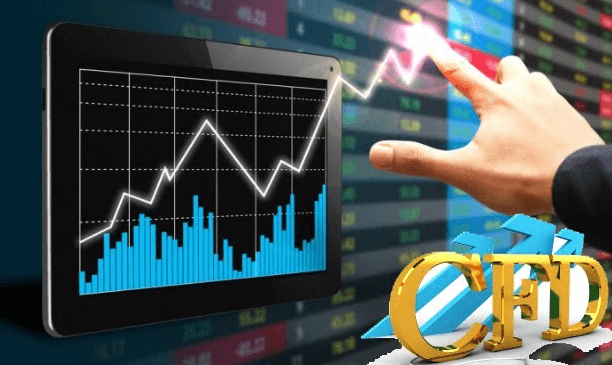Choosing the Right CFD Broker: Key Considerations

Choosing the right CFD (Contract for Difference) broker can be the difference between a successful trading experience and a frustrating one. Whether you’re new to trading or looking to switch brokers, making an informed decision is crucial. In this blog post, we’ll explore the key considerations to help you choose the right cfd broker for your needs. From understanding fees to evaluating trading platforms, we’ve got you covered.
Why Choosing the Right CFD Broker Matters
The way to having a decent exchanging experience in CFD exchanging is the broker you select to exchange with. A good broker can give you all the tools and support you need to make a success of forex trading, where as a bad one will simply cause needless delays, losses or problems.
A good broker should have low fees, easy to use platform and great customer service. They also make sure your trades are executed correctly and There are a lot of brokers out there, so it is important to take the time to do your homework and compare the options available.
Understanding CFD Trading
CFD trading is the process of trading instruments that represent a specific campaign without going through the purchase process. This flexibility is why it is so appealing to traders who wish to expand their asset base. Nevertheless, it is crucial for traders to ensure they comprehend how the process of CFD trading functions in comparison to traditional trading.
CFDs are contracts that you enter with a broker to trade the difference in the asset’s value between when you opened your position and when you close it. In other words, you can make money in two ways-on the rise and the fall of securities. But it also carries more risks as CFDs are leveraged products.
CFD Broker Selection Criteria
1. Regulatory Compliance
The first thing to do upon landing a CFD broker is checking its regulatory status. Regulated brokers can provide you with the peace of mind that your money is safe and that the broker complies with high industry standards. Make sure it is licensed by well-known authorities (e.g. the Financial Conduct Authority in the UK or the Australian Securities and Investments Commission)
2. Trading Platform
Your trading platform is what you use to access the financial markets, so it is important that your brokerage gives you access to a stable and easy-to-use platform. These can include things like advanced charting options, real-time data, and customizable interfaces. Traders use commonly popular platforms such as MetaTrader 4 (MT4) and MetaTrader 5 (MT5).
3. Fees and Commissions
If they are already in a trading position (long) and want to BUY more contracts, the futures trader does not pay any commissions but just pays rollover fees. The futures trader only has to pay commissions for either EXITING or SELLING a position. Understanding your broker fee structure is another key principle you should know to control the cost of trading. Brokers will charge different fees such as spreads, commissions, overnight financing (or holding costs in the case of Plus500) and withdrawal fees. Many brokers have varying fee structures so you need to compare them and make sure you choose a broker that has the lowest fees but also meets your expectations.
4. Range of Markets
A variety of markets you can trade in various asset classes (such as stocks, commodities, indices and currency) Therefore, to increase your chances of generating profits select a brokerage company that offers you multiple markets to trade on. By using the flexibility, you can profit from various market conditions and lower your overall risk.
5. Customer Support
If your account will get in bother, you wish to be secure that the client help employees shall be useful and environment friendly. Choose a broker who provided more than one mode of contact, like Phone, Email and Live chat. Also, look for brokers who offer educational tools and webinars to help you increase your trading knowledge.
6. Leverage & Margin Requirements
While it increases the risk, leverage also enables traders to control positions with a small amount of capital. Since various brokers provide different maximum leverages, you should select a broker whose latest margin align with your risk tolerance and or your trading strategy. Also, confirm the margin requirements to make sure you have enough money to satisfy them without wiping out all your capital.
7. Account Types
CFD Brokers will offer different types of account to suit your trading requirements. Some of these include normal accounts, VIP accounts, and practice accounts. Check out the differences in features and benefits of each account type to see which one best fits your trading style. This type of account, called a demo account, is particularly useful for learning how to trade with real money.
8. Order Execution
Speed and execution capability on order) – it greatly affects the outcome of the trade. Select a broker that gets your orders filled immediately, every time; whether you enter trades for pullback entries or for support/resistance bounces. Slippage and re-quotes are very annoying as well as expensive; hence, it is imperative that you partner with a broker who has an excellent history on this path.
9. Educational Resources
No matter if you are a new trader or experienced one, continuing education is important. Firstly, opt for a broker that offers various sources of education like tutorials, articles, videos and webinars. Among the resources available here are links to market trend updates, trading strategies and risk management techniques.
Read also AI Virtual Studio – Next Generation Car Photographer & Editor
10. Reputation and Reviews
How to find better brokers and what factors will help you to get an idea on their credibility Go through the information on credibility This is very important as checking whether broker has certification etc from reliable source is hype that they are not scamSee other traders reviewToday, many people want to make money out of trading too. Search for brokers who have a good reputation and a proven history in the business. It is easier to get better suggestions if you seek the help of an online forum or social media group.
11. Security of Funds
This is the most important aspect when selecting a CFD broker because you want to know that your funds are safe. Choose a broker with segregated account to keep your funds with the broker from his own operating capital. That provides a further layer of safety in the case the broker is financially shaky.
12. Bonuses and Promotions
In order to acquire new clients, some brokers are providing an additional bonus and introductions. While these incentives sound wonderful, it is necessary to read the small print. One of the things you need to keep an eye out for is what kind of restrictions they place on the bonuses, or whether they add hidden fees, subsequently impacting how well you will be able to trade with them.
13. Mobile Trading
In the rapidly changing world of today, need for having access to your trading account on the move is indispensable. Select a broker that provides a powerful mobile trading platform to keep an eye on your trades and handle them via any device. Mobile Trading App: Finding a mobile trading app that enhances your experience with its intuitive interface, and offers comparable (if not identical) features to the desktop version.
14. Social Trading
Social trading enables you to track and copy-trade master traders. For investors who are new to trading and who prefer to social copy trading, a broker with these features can be a good fit, as well. This gives you transitions insights a broadens the arsenal to learn from successful traders in real time.
Conclusion
Picking the right CFD broker is an important process in your trading career. You can compare brokers based on criteria including regulatory compliance, trading platforms, fees, customer support and educational resources to decide which one best matches your trading style.
So, always keep in mind the right broker can take your trading to the next level and make you grow richer every day! Don’t be afraid to research or compare the options available, and also don’t be shy when consulting the brokers for any doubts.
Sir, are you ready to trade? Create an Account and Start Trading Now with a Reliable CFD Broker





